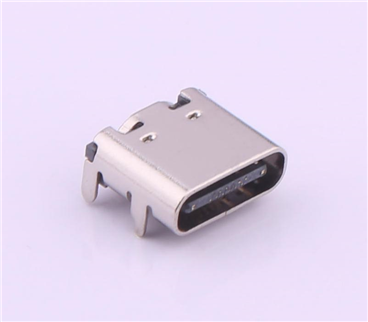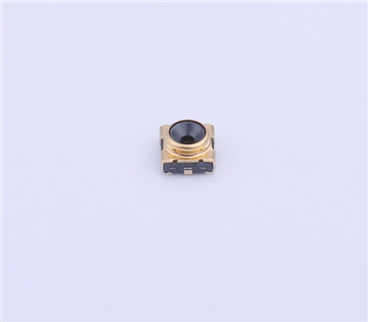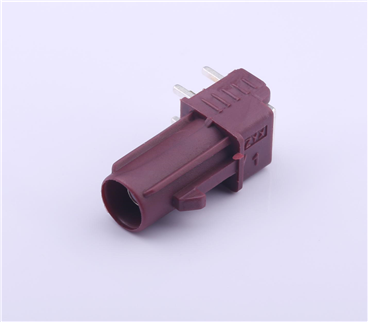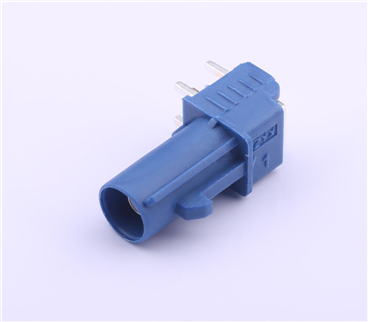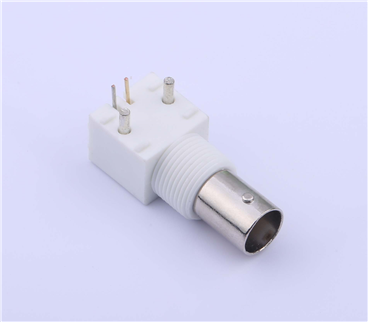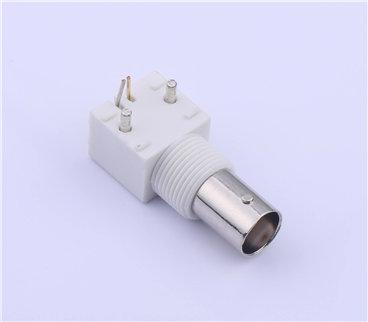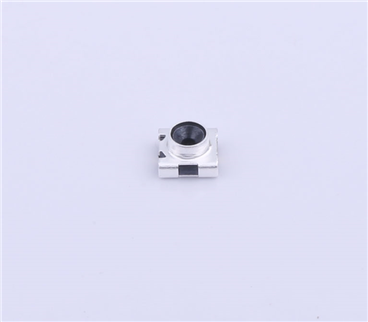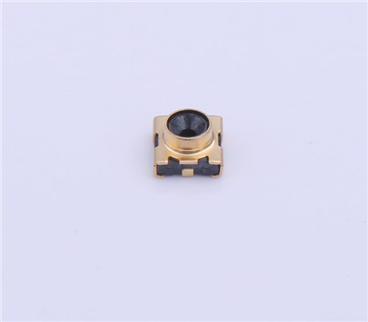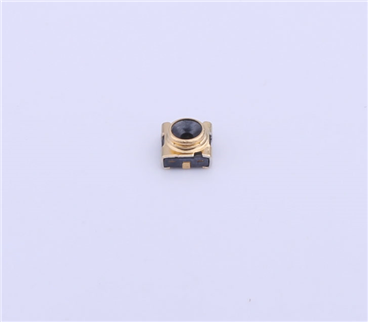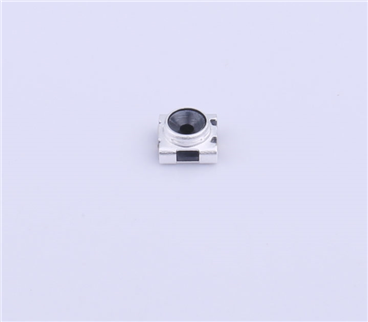The rise of Beidou chip
Beidou chip is not only the first link of Beidou industrial chain, but also one of the most important components of the industrial chain. With the efforts of completing the development and launch of Beidou navigation satellite and forming the infrastructure of Beidou navigation satellite constellation, the Beidou navigation industry chain has gradually taken shape, which is subdivided into major industrial links such as navigation chip, navigation terminal equipment, navigation map information service and operation service. Among them, the chip industry plays an important role in Beidou navigation. The successful industrialization of Beidou chip directly determines the weight, volume, performance and cost of the terminal, and indirectly determines the promotion of the downstream industry of Beidou navigation. From the perspective of industrial maturity development, the independent design of Beidou dedicated integrated chip (i.e. ASIC chip) will be the inevitable trend of the development of Beidou navigation industry. Therefore, the research and development of navigation chip will directly affect the development of the whole satellite navigation industry.
China's Beidou navigation system was launched from the first test satellite in October 2000. It has experienced the construction of Beidou first-generation navigation system and Beidou second-generation navigation system, and Beidou navigation chip has also experienced the development of several generations. Zhang Kewei, general manager of aerospace Huaxun Fu, talked about this topic. At the beginning, the development of Beidou generation receiver chip was only concentrated in a small range of individual research institutions, with large volume, high price and very limited market application. At the end of 2010, the state organized the bidding and comparison test of the major special civil baseband chip project of the second generation navigation. Although some manufacturers have started the development of the Beidou second generation navigation receiver chip, most manufacturers still use FPGA or FPGA DSP board to participate in the bidding. In 2011, in the bidding for the two passenger and one hazard demonstration project of the Ministry of communications, domestic mainstream manufacturers launched their own Beidou chips. Most of the baseband chips are 110Nm and the RF chips are 130nm. Now Beidou chip is more and more widely used, and its development can be summarized as a "rising star".
Technological process
The short history of Beidou chip carries the great leap forward innovation and development of China's high technology. With the development of Beidou industry, the integration degree of Beidou chip is continuously improved. On the one hand, the process is continuously improved, on the other hand, the integration technology is improved. With regard to the technical development of Beidou chips, Li Xiaojiang, general manager of Beidou Business Department of Zhongke Pico Electronics Co., Ltd., said in an interview that during Beidou generation, Beidou generation did not attract the attention of commercial chip enterprises due to the limitations of Beidou generation services and the narrow market space. RF technology is difficult because RF chip has RF transmitting function. Only a few companies in the market make Beidou generation RF chips, and some manufacturers even build them with discrete devices; Baseband chip is lack of investment.
From 2007 to December 27, 2012, the Beidou II regional system is under construction. The huge market prospect of Beidou II has attracted many domestic chip manufacturers to invest in the research and development of chips in this field. Since the ICD documents of Beidou II have not been released at this time, the chip design manufacturers at this stage are all carried out under the national project framework of Beidou office. The chip scheme is carried out according to the plan of "dual chip scheme". The prominent chip enterprises include Xi'an Aerospace Huaxun, China Science and technology micro, leading microelectronics, Hexin Xingtong, Dongfang Lianxing, etc, Agents for market promotion include Shenzhen jinhangbiao Electronics Co., Ltd. and other enterprises. Most of the chips in this period used the mature processes at that time, such as 0.18um, 0.13um and so on.
Since December 27, 2012, the second generation ICD document of Beidou has announced that the civil chip design is open all over the world. In addition to the above domestic enterprises funded by Beidou office, foreign chip enterprises and domestic chip enterprises that have not received financial support, they have increased their investment in Beidou chips and launched various chips supporting Beidou functions. Beidou chips have entered a relatively comprehensive stage of free competition. Foreign chips inherit the original GPS strength, and the chip design level is relatively high. The scheme adopts "RF baseband integrated SOC chip" and international mature technology (65nm, 55nm, 40nm, etc.), so that foreign chip products have certain advantages in power consumption, cost, performance, etc. Most domestic enterprises mainly promote "dual chip scheme", or sip multi chip packaging, and the process adopted is close to the internationally mature process (0.13um, 0.11um, 55nm). Although there are disadvantages in power consumption, cost and performance, the gap has been greatly narrowed.
In terms of chip manufacturing process, Li Xiaojiang of China Science and technology micro believes that the gap between domestic products and foreign chip processes is about one generation, and foreign mature processes can now be OEM in China, and the gap is not wide. Li Xiaojiang believes that there are two main reasons for the situation of "foreign leading and domestic following" in the chip market. First, since the second generation of Beidou, many domestic companies specializing in making chips have joined, and the R & D strength of Beidou chips has actually made great progress. Second, since the competitive focus of Beidou chip is not high-performance computing, and the expansion of market capacity is not as rapid as that of mobile phone products, the pursuit of advanced technology is not urgent. There has not been a rapid transition similar to CPU in the process route, and the use of mature technology can meet the needs of competition. Therefore, at present, the technology of Beidou chip is still concentrated in mature technology, and the gap between domestic and foreign is narrowing and finally flat.
Development status
Beidou has rich market applications, which can be divided into four directions: navigation monitoring, time service, surveying and mapping, military and other application fields, of which the application of navigation monitoring accounts for 95% of the market. Therefore, Beidou chips are correspondingly distributed in the above four fields, and mainly focus on the first three types of applications. The navigation monitoring application field has a large amount of consumption, far more social influence than the time service application, and has received high attention from the public. It is a benchmark market field for the success or failure of Beidou application promotion. In addition to realizing the basic time service function, the more important value of Beidou chip is system security. The localization of Beidou timing chip will be an absolute demand in this application. The future Beidou time service application will focus on domestic independent chips. The field of Surveying and mapping application is the country's basic data industry, which takes Beidou surveying and mapping chip as the carrier. The level of Beidou surveying and mapping chip will directly determine the quality of products, which is the foundation of the survival and development of the industry.
Beidou chip has a large market demand, a late start and a fast speed. There are inevitably many problems in its development. In terms of RF of Beidou chip, due to the adoption of more advanced production technology, the area of RF chip is not significantly improved (especially the area of analog circuit is slightly improved). From the perspective of saving streaming cost, domestic RF chip is still mainly at the level of 130nm process.
In terms of baseband of Beidou chip, at present, two domestic baseband chip manufacturers have launched baseband chips with 55nm process. In addition, one baseband chip manufacturer has adopted SIP packaging technology to launch the three in one integrated chip of RF 55nm baseband BB flash memory, aiming to enter the application field of intelligent consumption.
For the application of Beidou in the field of intelligent consumption, song Shiqiang, general manager of Shenzhen Golden beacon Electronics Co., Ltd., believes that in order to make substantive progress in the application of Beidou in intelligent consumption, in addition to focusing on breaking through the three aspects of price, size and power consumption, it also needs to realize the functions of automatic interference identification and elimination and a-bds in terms of technology. In addition, a complete set of solutions and reference designs including
antenna, RF BB flash three in one integrated chip, software package, etc. shall be provided.
Compared with foreign countries, foreign GPS baseband chip technology has developed to the fourth generation. It has accumulated a lot of practical experience in anti multipath and inertial navigation. The chip technology has been very mature, realized the single-chip scheme, and has obvious cost advantages. These experiences are accumulated through a large number of tests and the actual operation of the system.
As a big agent of Beidou chip in China, golden beacon has always been rooted in the front line of the market and has the most say in the development of the market. The development of Beidou chip has a long way to go. Song Shiqiang, general manager of jinhangbiao electronics company, believes that without several years of market tempering and experience accumulation, it is difficult to rise suddenly, but the future development prospect of Beidou chip is unlimited. According to the estimation of relevant industry experts, the cumulative shipment of civil on-board monitoring and on-board navigation application modules and OEM boards for high-precision applications is expected to exceed 5 million by the end of 2014.
Prospect
China's navigation chip industry started relatively late, but its development momentum is very strong. Before the construction of Beidou system, the core technologies of navigation chip and receiver were blank for a long time. With the construction of Beidou system, the navigation chip industry began to start and develop rapidly. After 2010, two generations of chips were launched with the support of major projects, realizing mass production and million level applications. At present, there are more than ten Beidou chip manufacturers in China. Although they started late, they started from a high starting point. From the beginning, they set their goal as the level of the third generation navigation chip in the world. Different from international giants such as Qualcomm and Broadcom, domestic satellite navigation chip enterprises are generally small in scale and focus on satellite navigation, which is in a relatively weak position in the trend of integration with mobile communication and other technologies. With the launch of domestic 55 nm (nm) Beidou / GPS dual-mode chip in 2013, considerable progress has been made in the research and development of Beidou satellite navigation system chip in China. The chip performance provided by some manufacturers has been comparable to that of similar foreign products. In high-precision applications such as surveying and mapping, driving test and other fields, domestic chips have occupied more than 30% of the market share in a short time. The new users are mainly concentrated in the two fields of on-board monitoring and professional handheld surveying and mapping, and the satisfaction of the user group is higher than expected.
As a part of Beidou satellite navigation system, the development prospect of Beidou chip is closely related to the development of Beidou satellite navigation system. At present, there is no replaceable technology for satellite navigation system. The United States, Russia and Europe are continuously increasing the investment and upgrading of satellite navigation system. The dual-use design also makes this technology in the forefront of comprehensive national strength competition. Therefore, the status of satellite navigation system can only be more and more important in the national strategic development. As the core technology of Beidou satellite navigation system, Beidou chip must shoulder its unique historical responsibility.
For China, Beidou satellite navigation system is one of the four major global navigation systems recognized by the United Nations. Its construction goal has been arranged to 2020. In order to take the lead in the competition of the four navigation systems, realize its commitment to the international community and promote the upgrading and development of Beidou satellite navigation in the future, the importance of Beidou satellite navigation system in national strategy will increase day by day. In this international and domestic context, the prospect of Beidou satellite navigation is infinitely bright, and the prospect of Beidou chip is also exciting.
